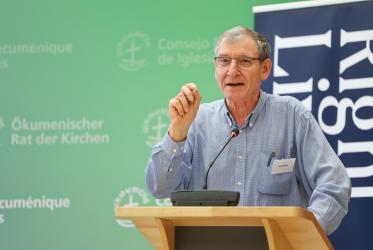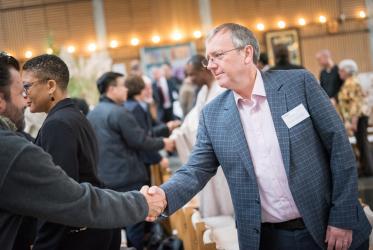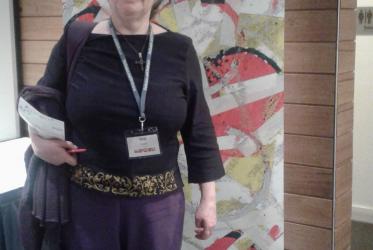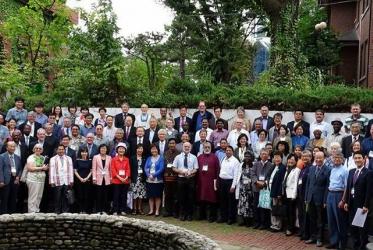Displaying 1 - 20 of 30
#WCC70: A prayer about health and healing
20 July 2018
WCC celebrates “living fellowship”
20 June 2018
The motor engineers of the ecumenical movement
18 September 2017
G7 must address famine
22 May 2017
Plans for 2017 decided by WCC Executive Committee
01 December 2016
Religion: Way of war or path to peace?
30 June 2016
New Executive Committee members elected in Trondheim
28 June 2016
New member churches welcomed in WCC
27 June 2016
WCC Executive Committee works toward a future of peace and justice
19 November 2015
Prayers, reflections and action during “Time for Creation”
15 September 2014












